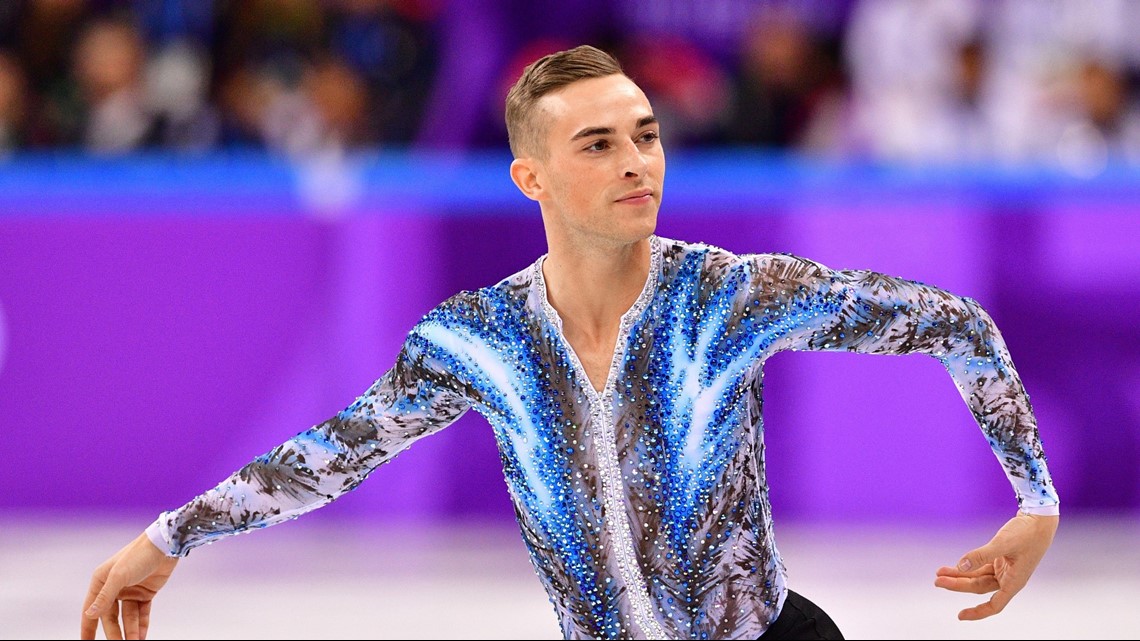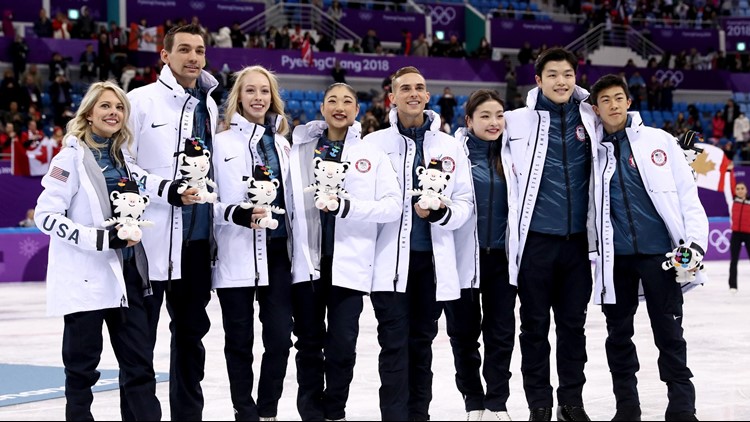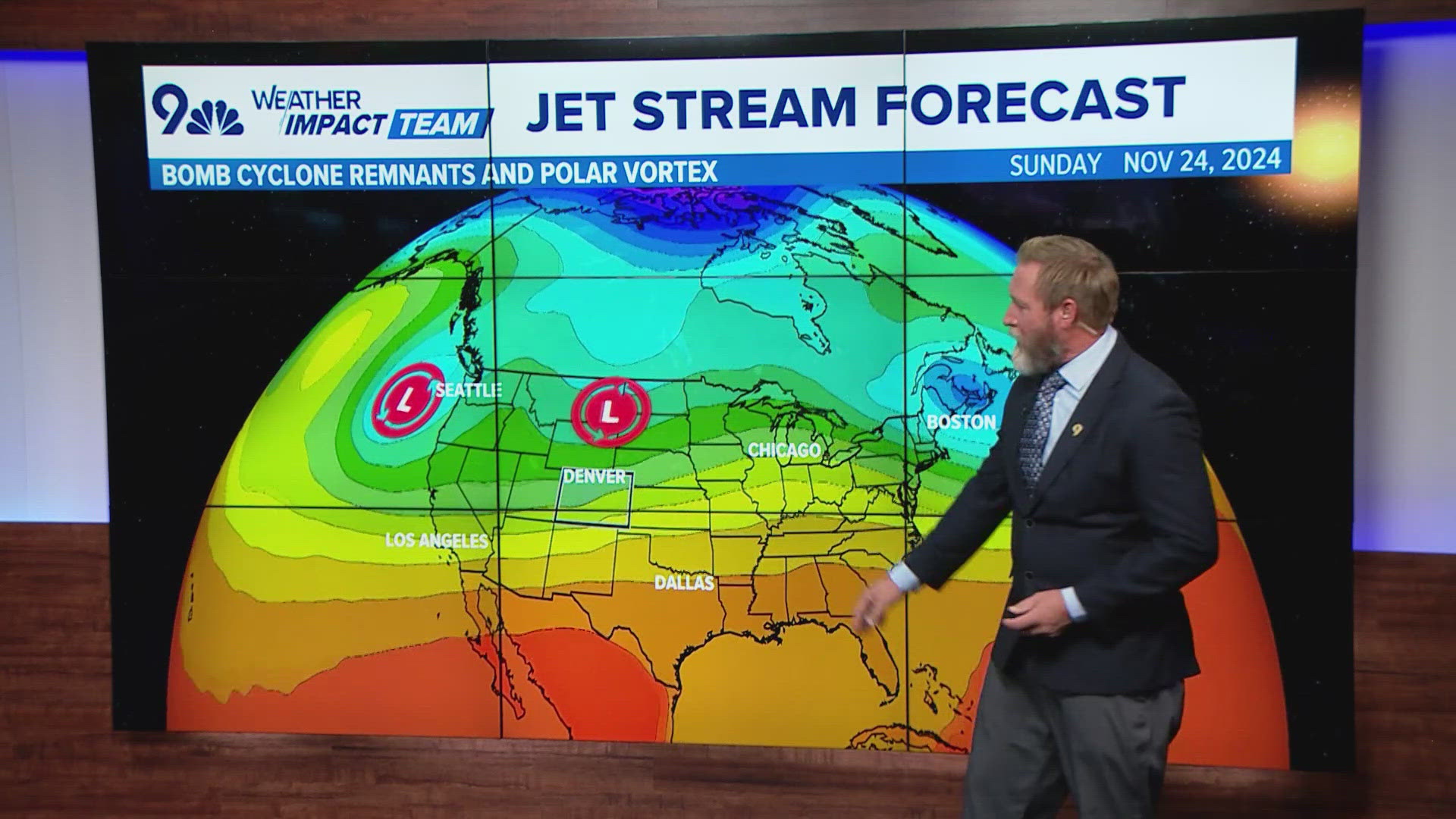Adam Rippon and Mirai Nagasu, 20-something veterans who have already lived a lifetime or two in figure skating, turned in the performances of their lives Monday morning to lead the United States to the bronze medal in the Olympic figure skating team competition.
Canada routed the Olympic Athletes from Russia for the gold. The final score was Canada 73, OAR, 66, and the USA, 62. The margin was surprising, and devastating for an OAR team that wants its performances here to show its displeasure in the International Olympic Committee’s banishment of the nation due to its massive state-sponsored doping program. Four years ago, Russia won the gold over Canada, with the USA third.
The Americans were third again, but there was something magical about Monday’s skates that made it anything but repetitive or routine.


Rippon, 28, who has found himself in the glare of the spotlight since mid-January when Vice President Pence took surprising exception to Rippon’s critical comments in a Jan. 17 USA TODAY story, turned in an Olympic debut that he’ll remember for a lifetime. He didn’t try a quadruple jump – which was a good thing, even though it hurt him compared with his top competitors – but his program was lyrical and majestic and just what Rippon dreamed of.
“I don’t think I've ever been so nervous at 10 a.m. in my life,” he said after securing third place in the men’s event, which was exactly where the USA needed him to be to keep its precarious lead over Italy, which ended up fourth with 56 points. “I was like, you are going to miss every element in your program.”
But Rippon needn’t worry.
“I said I want to go out there and I want to skate really strong. I felt it was important to come out here and skate a very strong performance for the U.S. team.”
That he did. It turns out he ended up less than a point out of second place – a truly powerful performance without a quad, stating a strong case for the elegance of his sport without the toughest jump.
Then came Nagasu, 24, who had to be first out of the gate in the women’s long program based on the finishes in the women’s short program Sunday. She took the ice, and within 30 seconds, had made history, becoming the first American woman to land a triple axel in the Olympic Games. Only Japan’s Midori Ito and Mao Asada had done it. Now Nagasu has joined them.
“Today is a day of accomplishment,” she said. “It is a lot of pressure and stress to come out here. It was my goal and dream to be here and be selected to the Olympic team so I knew going into it the amount of responsibility that I was given.”
When the women’s competition was over, Nagasu was a surprising – and stunning – second, behind only OAR’s Alina Zagitova. Going into the event, the thinking was the American woman would finish fourth or fifth in a very strong field. But that triple axel propelled Nagasu to a clean program and an exhilarating performance at just the right time.
Then, last but hardly least, the sister-brother team of Maia and Alex Shibutani did their part, finishing second in the dance to Canadians Tessa Virtue and Scott Moir to put the finishing touches on the American bronze medal.



